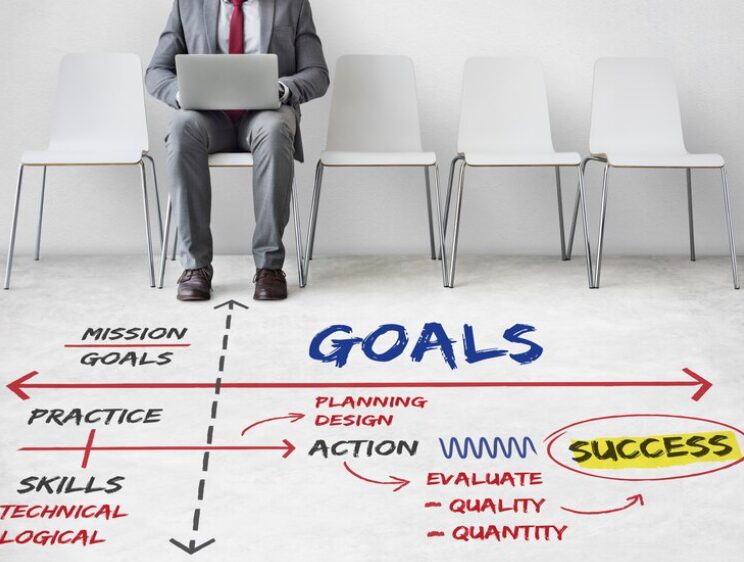Success, in its many forms, is a destination we all aspire to reach. Yet, navigating the path to achievement often requires more than hard work and perseverance; it demands a strategic approach to goal assessment. This guide delves into the art of effective goals, a critical step toward mastering success.

Understanding Goal Assessment: The Foundation of Success
Goal assessment is not merely about setting objectives but evaluating and reevaluating them to ensure they align with your evolving aspirations and capabilities. It’s a continuous process of reflection and adaptation that keeps you on the right track towards achieving your goals.
The Importance of Goal Assessment in Your Success Journey
Effective goal assessment plays a pivotal role in success. It helps clarify your objectives, identify potential obstacles, and provide a roadmap. By regularly assessing your goals, you can make informed decisions and adjust your strategies, ensuring that your efforts are always aligned with your ultimate objectives.

The Steps to Effective Goal Assessment
1. Set SMART Goals
First, your goals must be Specific, Measurable, Achievable, Relevant, and Time-bound (SMART). This framework lays the groundwork for effective goal assessment by providing clear benchmarks against which progress can be measured.
2. Regularly Review Your Goals
Life is dynamic, and so should your goals. Regular reviews allow you to adjust your objectives in line with changing circumstances, ensuring they remain relevant and achievable.
3. Measure Progress Quantitatively and Qualitatively
Quantitative measures provide concrete evidence of your progress, while qualitative assessment helps understand your goals’ impact on your overall well-being and satisfaction.
4. Seek Feedback
Feedback from peers, mentors, or coaches can provide invaluable insights into your goal assessment process. It introduces different perspectives that can help in refining your goals and strategies.
5. Adjust and Adapt
The ability to adapt your goals based on assessment outcomes is crucial. It ensures that you are always working towards meaningful and attainable objectives.

The Role of Mindset in Goal
Your mindset plays a crucial role in goal assessment. A growth mindset, one that embraces challenges and learns from failures, is essential. It encourages resilience and adaptability, key traits for effective goals and achieving success.
Overcoming Challenges in Goal Assessment
Goal assessment is not without its challenges. Common hurdles include setting unrealistic goals, facing motivational dips, and facing external pressures. Overcoming these challenges requires persistence, flexibility, and a positive attitude.
Leveraging Tools and Techniques for Goal Assessment
Various tools and techniques can aid in effective goal assessment in this digital age. Apps for goal tracking, journals for reflection, and visualization techniques can all make your goal more structured and effective.
The Importance of Consistency and Commitment
Consistency in assessing your goals and commitment to the process is vital. They ensure that goal assessment becomes an integral part of your journey towards success.
Case Studies: Success Stories Through Effective Goal Assessment
Numerous success stories illustrate the power of effective goal assessment. From entrepreneurs who pivoted their business strategies to athletes who refined their training regimes, these cases highlight the transformative impact of effective goals.
Learning from Failures: The Other Side of Success
Success is often built on a foundation of failures. Effective goal involves learning from these failures and using them as stepping stones toward your ultimate objectives.

FAQ: Achieving Success Through Goal Setting
What are the 7 steps of goal setting?
The 7 steps of goal setting typically include:
- Define Your Goals: Clearly articulate what you want to achieve.
- Set Specific Goals: Make your goals clear and measurable.
- Create a Plan: Outline the steps you need to take to reach your goals.
- Break it Down: Divide your goals into smaller, manageable tasks.
- Stay Organized: Keep track of your progress and adjust your plan as needed.
- Stay Motivated: Find inspiration and remind yourself why your goals matter.
- Celebrate Success: Acknowledge your achievements and reward yourself along the way.
What are 5 goals for success?
Five goals for success may include:
- Career Advancement: Set specific targets for promotions, skill development, or job satisfaction.
- Financial Stability: Establish savings goals, investment plans, or debt reduction strategies.
- Personal Growth: Pursue goals related to health, relationships, or self-improvement.
- Entrepreneurial Pursuits: Aim to start a business, launch a product, or expand your ventures.
- Community Engagement: Commit to giving back, volunteering, or positively impacting your community.
How do you master your goals?
To master your goals, follow these steps:
- Set Clear Objectives: Define your goals with specificity and relevance.
- Develop a Plan: Create a detailed roadmap outlining the steps required to achieve your goals.
- Stay Focused: Prioritize tasks, manage distractions, and stay committed to your objectives.
- Monitor Progress: Regularly assess your advancement, adjust strategies if necessary, and celebrate milestones.
- Seek Support: Surround yourself with mentors, peers, or resources that can offer guidance and motivation.
- Stay Flexible: Adapt to changes, setbacks, and new opportunities without losing sight of your ultimate goals.
- Reflect and Learn: Evaluate your experiences, learn from failures, and continuously improve your approach.
What are the five steps in goal setting?
The 5 steps in goal setting typically include:
- Define Your Objective: Clearly articulate what you want to achieve.
- Set Specific Goals: Make your goals clear, measurable, and attainable.
- Create a Plan: Outline the actions and resources needed to accomplish your goals.
- Track Progress: Monitor your advancement, adjust strategies as needed, and stay accountable.
- Evaluate and Adjust: Reflect on your results, learn from experiences, and adapt your approach for continuous improvement.
After all that, Your Path to Mastering Success
Mastering success through effective goal assessment is a journey that requires dedication, flexibility, and strategic thinking. By understanding the importance of goals, embracing the right mindset, leveraging available tools, and learning from successes and failures, you can chart a path that leads to realizing your dreams.
Remember, effective goal assessment is not a one-time task but a continuous process crucial in your journey to success. Embrace it, and watch as it transforms your aspirations into achievements.
🚀 Boost Your Productivity!
Join our weekly newsletter for top time management tips and productivity strategies. Subscribe now to get the latest insights and a special bonus guide: Mastering Success: Your Ultimate Guide to Effective Goal Assessment





